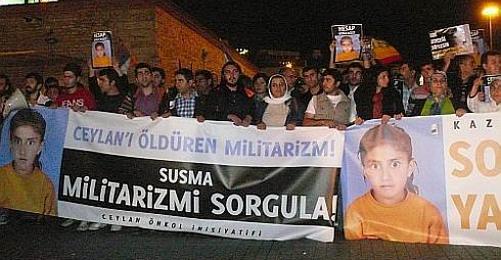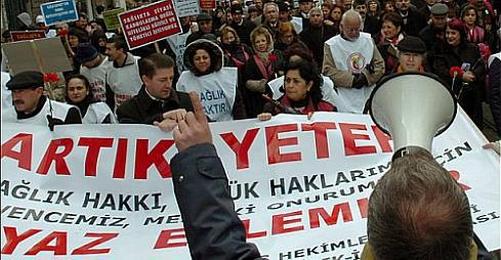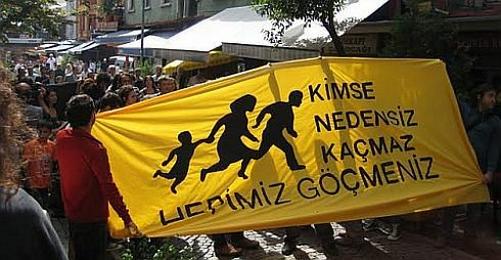Children Should Participate in Media
After a two-day training, the participants agreed to allocate more space to news that have the participation of children, to pay attention to the laws when preparing news about children and to desert the perspective that victimizes children.
Some of the participants planned to open up more space for children in their publications or broadcasts, while others considered projects to redesign existing children's publications.
"Media is judging by saying 'criminal child'"
"I have been a journalist for many years now," said Ergun Ozmen from the Bilecik "Yeni Pazar" (New Sunday) newspaper. "I realized that I have been making a lot of mistakes without knowing and also learned how I should report on children."
"I realized that the media, when reporting on children, is actually most of the time, judging children," added Ozmen. "I realized that there is no 'criminal child,' but only child, who has been pushed into committing crime."
"Although I always supported complying with children's rights when reporting, I never quite knew how," said Talip Kaynar from Istanbul's "Ulkede Ozgur Gundem" (Free Agenda in the Country) newspaper. Kaynar said the training provided a comprehensive view on the issue.
"Our newspaper's children's page has a new meaning now"
Devrim Derin from Balikesir's "Yeni Haber" (New News) newspaper, said they allocate a page for the articles of secondary-school students. "Now that one page seems more meaningful," said Derin. "I am thinking of ways to improve it."
"I have realized that it is not enough to allocate space for children or to prepare more reports on children," said Tolga Cevikkol from Galatasaray University. "The question: 'what kind of a report on children?' is the important question." He said he would follow the media from a different perspective from now on.
"To have a comprehensive look at the media"
Mutlucan Sahin from Galatasaray University said he believed the meeting of local and national media employees in Kocaeli would lead to positive outcomes in practical terms.
"The fact that the seminar focused on specific issues we all knew about but did not pay attention to helped us have a better and more comprehensive look at the media," said Sahin.
First women and now, children...
Zuriye Iskender from the Zonguldak "Son Havadis" (Latest News) newspaper, who had attended the training seminar on "Reporting on Women's Rights, said from now on, children's psychology will be a priority for her in writing news. "I had learned a lot at the seminar (on Reporting on Women's Rights)," said Iskender. "And I had applied the things I learned after returning home. I got very positive results. Now I cannot wait to put into practice things I learned about reporting on children."
Degisim Medya is building a school
"We paid attention to allocate space for children in our publication," Huseyin Orhan, the general manager of Zonguldak Eregli's "Degisim Medya" (Change Media) newspaper. "But I realized here how much attention we need to pay." Orhan said the training seminars should continue so that more people benefit from them.
Orhan said Degisim Media was preparing to build a school in a village in Zonguldak and added the training provided motivation to speed up their plans.
Media's role in rights activism
Zafer Beyaz, an official from Bursa Mustafa Kemal Pasa Medya Dost said he learned new things at the seminar. "It is important for me to learn that children are not dangerous but they are in danger," said Beyaz. "I always used to act thinking children will always stay as children."
"I will listen to my child side when preparing news," said Canan Aktas from Bursa's Dost (Friend) FM. "So it will be easier for me to empathise with children." Aktas said she was not sure she would pursue a career in journalism before she came to the seminar. She said she changed her mind after realizing how much journalism could contribute to rights activism.
Onat: Media has a big responsibility
On the first day of the meeting, Yasemin Onat, a lawyer from the Antalya Bar Association, opened a discussion on basic legal standards aimed at raising awareness about the rights of the child.
Children's rights activist Onat talked about the main agreements also ratified by Turkey and gave examples of children's rights violations by the media. Onat also argued that children are unable to adequately benefit from the means of mass communication. Children are legally victimized through the use of expressions such as: "criminal child or homeless child" in the media, argued Onat.
Legal necessities of perspective with a focus on children "There is no 'dangerous child,' but 'child who is in danger'," said Onat. She told the participants how they could comply with laws through the language they use, talked about the media's power and explained how the participants could play a positive role by preparing news with a focus on the children.
The participants, in a workshop directed by Onat, analysed the expectations of the children, the families, and the society from the media, and the media managers' expectations from their employees.
Child overlooked by the media
Incilay Cangoz, an academic at the Communications Department of Anadolu University, questioned with the participant, whether the media can be objective or not.
The fact that the poor, children, the elderly, and women are not represented in the media is against the principle of objectivity, argued Cangoz. She added that this recreates the inequality present within the society.
One of the participants said the viewers and readers in Turkey act with their emotions, adding that if the language is purified of emotions when reporting on children, the news would not be effective enough.
Cangoz said it is important to leave a distance when preparing news. "It is more effective and the right thing to do to prepare a deep news with a cool-headed perspective," said Cangoz.
Sema Hosta, who is responsible for the UNICEF Communications Program talked about how a "Child-Friendly Media Network" could help media organizations communicate to produce reports that oversee the rights of the child and implement self-monitoring.
Hosta also distributed the participants brochures on the avian influenza and underlined the importance of providing elements that would inform the reader, listener or viewer when preparing news.
Bianet Children's Issues Editor Kemal Ozmen said reporters, when writing news about children who have been pushed into committing crimes, should ask: "how and why are these children pushed into committing crimes and who pushes them?" Ozmen held a workshop with the participants and evaluated news clips.
At the end of the workshop, the participants talked about the mistakes in the news clips they evaluated.
Respecting children's rights when conducting interviews
Journalist Ragip Duran from the Communications Department of the Galatasaray University talked to the participants about the issues to be paid attention to when conducting interviews with the children.
Duran highlighted the importance of treating children as adults. Duran said reporters should ask: "what are you thinking?" instead of "what are you feeling?" for a more protective attitude.Children should have the chance to participate
Ezgi Koman from "Coluk Cocuk," a children's magazine, said participation of children in the media enhances the pluralism principle of democracy.
Participants discussed the participation of children and agreed children need to be given more chances to express themselves.
Koman drew attention to the principle of equality and showed participants examples of projects like news, short films, and Internet sites, all prepared by children. The participants agreed that children can produce the right things when given the opportunity to express themselves. They said a perspective to make children invisible is the reason why children do not have this opportunity. (EZO/AD/EA/YE)
Politician and NGOs Urge for Clarification of Önkol's Death

EU PROGRESS REPORT
Women's Rights Must be Implemented in Daily Life

Protests against Health Care Contribution Rate

Greens Launch Trial for Palovit Valley

"When Will Mohsen Abdolkhani and Hamid Karimnia Be Released?"





